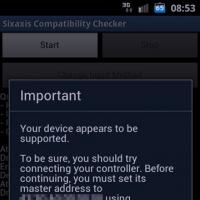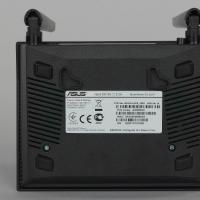The computer turns off spontaneously. Why does the computer turn off by itself while working? The laptop often turns off by itself: other reasons
Spontaneous computer shutdown is a fairly common occurrence among inexperienced users. This happens for a number of reasons, and some of them can be fixed manually. Others require contacting service center specialists. This article will focus on solving problems with PC shutdowns or reboots.
Let's start with the most common reasons. They can be divided into those that are the result of a careless attitude towards the computer and those that do not depend on the user in any way.
- Overheat. This is an increased temperature of PC components, at which their normal operation is simply impossible.
- Lack of electricity. This reason may be due to a weak power supply or electrical problems.
- Faulty peripheral equipment. This could be, for example, a printer or monitor, and so on.
- Failure of electronic components of the board or entire devices - video cards, hard drive.
- Viruses.
The list above is compiled in the order in which the reasons for the shutdown should be identified.
Reason 1: Overheating
A local increase in temperature on computer components to a critical level can and should lead to constant shutdowns or reboots. Most often, the processor, video card and CPU power circuits suffer from this. To eliminate the problem, it is necessary to eliminate factors that lead to overheating.
- Dust on the radiators of the cooling systems of the processor, video adapter and others available on motherboard. At first glance, these particles are something very small and weightless, but in large accumulations they can cause a lot of trouble. Just look at a cooler that hasn't been cleaned for several years.

All dust from coolers, radiators, and the PC case in general must be removed using a brush, or better yet, a vacuum cleaner (compressor). Compressed air cylinders that perform the same function are also available for sale.

- Insufficient ventilation. In this case, hot air does not escape outside, but accumulates in the case, negating all the efforts of the cooling systems. It is necessary to ensure the most efficient ejection of it outside the body.

Another reason is the placement of PCs in tight niches, which also impede normal ventilation. The system unit should be placed on or under a table, that is, in a place where a flow of fresh air is guaranteed.
- Dried thermal paste under the CPU cooler. The solution here is simple - change the thermal interface.
Video card cooling systems also contain paste, which can be replaced with fresh one. Please note that dismantling the device yourself will void the warranty, if any.
- Power circuits. In this case, the mosfets, the transistors that supply electricity to the processor, overheat. If they have a radiator, then underneath there is a thermal pad that can be replaced. If it is not there, then it is necessary to provide forced ventilation of this area with an additional fan.

This point does not concern you if you have not overclocked the processor, since under normal conditions the circuits cannot reach a critical temperature, but there are exceptions. For example, setting powerful processor into a cheap motherboard with a small number of power phases. If this is the case, then you should think about purchasing a more expensive board.
Reason 2: Lack of electricity
This is the second most common reason for shutting down or restarting a PC. Both a weak power supply and problems in the electrical network of your premises may be to blame for this.

Reason 3: Faulty peripheral equipment
Periphery is external devices, connected to a PC - keyboard and mouse, monitor, various MFPs, etc. If at any stage of their work problems arise, for example, short circuit, then the power supply can simply “go into protection”, that is, turn off. In some cases, faulty USB devices, such as modems or flash drives, can also lead to shutdown.
The solution is to disconnect the suspicious device and check the functionality of the PC.
Reason 4: Failure of electronic components
This is the most serious problem that causes system failures. Most often, capacitors fail, which allows the computer to function, but intermittently. On old motherboards with installed electrolytic components, faulty ones can be identified by a swollen case.

On new boards, without using measuring instruments, the problem cannot be identified, so you will have to go to service center. You also need to go there for repairs.
Reason 5: Viruses
Virus attacks can affect the system in different ways, including affecting the shutdown and reboot process. As we know, Windows has buttons that send "shutdown" commands to shutdown or restart. So, malware can cause spontaneous “pressing”.
- To check your computer for viruses and remove them, it is advisable to use free utilities from reputable brands - Kaspersky, Dr.Web.
- If the problem cannot be solved, then you can turn to specialized resources, where they can help you get rid of “pests” completely free of charge, for example, Safezone.cc.
- The last resort to solve all problems is to reinstall the operating system with mandatory formatting of the infected hard drive.
As you can see, there are many reasons why a computer turns off on its own. Eliminating most of them will not require any special skills from the user, just a little time and patience (sometimes money). After studying this article, you should draw one simple conclusion: it is better to play it safe and prevent these factors from occurring than to then waste energy on eliminating them.
If you suddenly have the misfortune that the computer turns off on its own while playing, don’t worry, let’s figure out together why this happened and what to do next.
What should you look at first if the computer turns itself off during a game? The motherboard has temperature sensors that monitor the processor and video card.
If they detect a temperature exceeding permissible standards, they will send a signal to a special microprogram that will definitely turn it off, in as a last resort, will switch to hibernation mode.
Temperature may rise due to various reasons: contamination, failure of microcircuits, resistors, capacitors, etc.
The first disadvantage, “pollution,” can be easily dealt with on your own. We remove the back cover of the computer, find the fan and, using available means (vacuum cleaner, hair dryer, air cans, scalpel, etc.), thoroughly clean out all the dust that we can reach. Other reasons will be discussed below.
Drivers, chipset and registry are largely responsible for all processes occurring in a computer.
Troubleshooting errors through the computer event log
I very often come across computers where the operation of one processor core is disrupted.
There are almost no single-processor devices today, so you may have the same reason.
Here the question arises: what to do to find out. Please keep in mind that everything described below applies to operating rooms. Windows systems 7.
I forgot to remind you, before doing this, launch the game and let the computer turn itself off, it will also be good if you remember the shutdown time.
After clicking on Event Viewer, another window will open. On the left side you will see “Windows Journal”, and opposite it is a small black triangle, so you will need to click on it to expand the menu.
Now the system option will appear in front of you, click on it and you should see a window divided into two parts.
At the top, information is provided on an hourly basis about the changes that have occurred in your system. Below is a description of why this happened.
Now, as you scroll in the top window, you will definitely see a red circle next to “information”. Compare from the computer and if everything agrees, click.
At the bottom you will be given information about why the computer turns off during the game.
Rewrite it to text document(it won’t be possible to copy) and if you yourself can’t figure out what’s what, try to find the answer using search engines.
If this does not help, ask your acquaintances, friends, or contact a service center. You can even call ahead with information from the event log.
Also look to see if there is anything missing - this greatly affects overall performance.
Since there are different situations, and I cannot describe them all, I will finish. Good luck.
In this article we will look at the main reasons why a computer may turn off by itself. Have you been working on a program or playing a game, and then, out of the blue, your computer just turns off? And even if this is not the first time this happens, don’t be alarmed. Let's deal with the problem that has arisen.
Poor cooling of parts
The first reason why a computer may turn off spontaneously is poor cooling of parts. In order for them to work stably and not overheat too much during operation, active or passive cooling is installed for them.
Make sure that the system unit is not covered on all sides: by furniture, cabinet partitions, etc. It should stand where there is free access to air. Otherwise, it can often overheat, because the warm air simply has nowhere to go.
Then remove side cover system unit and turn on the computer. See if all the fans are in working order: for the video card, processor, on the case. If the fan on the case does not work, then for better cooling of the parts, you can simply leave the side cover of the system unit open. If the fan does not work for a particular element, then it is better to replace it with a new one.
Also, pay attention to the dust inside the system unit. If a considerable amount of it has accumulated there, then it is better to clean the parts. After all, dust interferes with the dissipation of heat when heating the elements, which causes them to overheat and cause the computer to spontaneously shut down.

With the system unit turned off and de-energized, turn all the fans with your finger. They should not spin with difficulty or make strange sounds. Otherwise, lubricate them with sewing machine oil.
Look also at the state of the thermal paste - it is a viscous substance and is also involved in the process of heat transfer. If it is already dry, it needs to be replaced.
To prevent your computer from shutting down due to overheating again in the future, install the program to monitor the processor temperature CrystalDiskInfo. In this case, the temperature will be displayed in the tray.
Voltage drops
The second reason why a computer can turn off on its own is voltage fluctuations in the network. Moreover, you may not even know about it. For example, you are working or playing at the computer, at this time, one of your relatives turned on the electric kettle in the kitchen, or the refrigerator started working. As a result, a power surge occurs and the computer shuts down safely.
If everything is exactly like this for you - the computer turns off if any other electrical appliance is connected to the network, then it would not be a bad idea to purchase and connect an uninterruptible power supply.
Swollen capacitors
The third reason is swollen capacitors. Open the system unit and look at all the capacitors installed there. Their top should be smooth. If the cap of the capacitor is swollen, or there are streaks on it, then it may cause the computer to turn off spontaneously.

In this case, you need to buy suitable capacitors and resolder them. If you are not strong in electronics, then it is better to find a knowledgeable person or take the system unit to a service center.
Weak power supply
The fourth reason is a weak power supply. If you are running any game or program that requires large computational costs, then the computer may simply not have enough power from the power supply, as a result, it will turn off.
Problems with the video card
It is responsible for all graphics on the computer, that is, displaying images, videos, and games on the monitor. And if it fails, the computer may also turn off.
Very often, users are interested in the question: why does the computer turn off during the game. The reason may be a power supply that cannot withstand the load, or a video card that cannot handle graphics. Elements in the system unit may also overheat.
Failed hard drive
It is from the hard drive that the computer reads all the information necessary for work. If you hear a strange sound when working at the computer, then it is better to think about purchasing new hard disk. Over time, they appear on the media bad sectors, and when the read head hits them, the computer may turn off spontaneously.

Driver conflicts
The seventh problem is conflict installed drivers. Drivers connect the hardware and software of a computer. And if they are poorly compatible, this can lead to the computer shutting down. Try reinstalling the conflicting drivers: , and using special programs: , and others.
Viruses
And the last reason I want to describe is viruses. The fact is that they, like programs and games, can greatly overload the system, as a result, the computer will simply turn off. The simplest solution is to scan your computer using an antivirus program, then delete any infected files found. If it helps, then great, if not, move on.
Try doing a last known known configuration. To do this, restart your computer, and while the operating system is loading, press F8 frequently. In the window that appears, use the arrows to select the item "Load Last Known Good Configuration". If the problem does not go away, move on.
If you cannot use your computer for 5 minutes, then it turns off, we will try to remove viruses in safe mode. Press F8 again when rebooting, then select « Safe Mode» . If the computer boots and works normally, great. Run an antivirus program and remove all viruses found. The best option for this is the AVP Tool.
There are enough ways to help you. Follow the link and read a detailed article about this.
I hope now you can figure out the problem: why the computer turns off by itself. If you know any other reasons, or have any questions, write in the comments.
Rate this article:One of the common problems when working with a PC is the sudden shutdown of the device. Moreover, this often happens unexpectedly, for no apparent reason. This behavior can cause a lot of inconvenience, even if such unexpected shutdowns rarely occur.
Listed below are the most likely reasons why your computer turns off by itself, as well as recommendations for troubleshooting possible problems.
1. Overheating of one of the computer components
 First of all, when the PC randomly turns off, it is recommended to check the temperature of the processor and other components. Overheats more often CPU(this component generates a lot of heat due to its design). But the reason may also lie in other components. For monitoring, you can use a specialized program that shows the temperature of individual PC elements, for example, HWmonitor.
First of all, when the PC randomly turns off, it is recommended to check the temperature of the processor and other components. Overheats more often CPU(this component generates a lot of heat due to its design). But the reason may also lie in other components. For monitoring, you can use a specialized program that shows the temperature of individual PC elements, for example, HWmonitor.
Cleaning your PC helps prevent overheating, which is best done not by yourself, but by contacting a service center. The fact is that cleaning a PC using ordinary brushes, brushes, a vacuum cleaner, etc. can cause additional problems. To clean your PC well, you need not only skills, but also the right equipment and tools.
The computer can overheat simply in hot weather. Its cooling system has limited capabilities. And in the event of abnormal heat, the power of the cooling system may not be enough. And then the PC clicks and turns off. Well, you will have to wait until more acceptable operating conditions arrive, or use fans, air conditioners and other cooling devices to create more comfortable operating conditions for your PC. Where people are able to withstand heat or cold, the computer may turn out to be a more “frail” partner and fail at the most inopportune moment.
2. Problem with the power supply
This is the second most common reason. There can be two main problems with the power supply: a malfunction and insufficient power. The problem may arise, for example, after installing new components (for example, a more powerful video card).
To check, you can temporarily install another, known working power supply into the PC. If the total power of the new components exceeds the total power of the previously installed power supply, then you need to replace the power supply with a more powerful one. In any case, the power supply must be sufficient to power all elements of the PC, otherwise the power supply must be repaired or replaced.
Repairing or replacing the power supply is also best done with the assistance of specialists or by contacting a specialized center. Since you not only need to have a suitable power supply available, but you also need to make an accurate diagnosis that confirms the version that the computer turns off due to the PC power supply.
3. Viruses or damage to system files
 Serious viruses can also affect system performance. To check for viruses, you must use a reliable antivirus. For a one-time check you can use trial version paid program, for example, DrWeb or Kaspersky - the functionality will be quite sufficient.
Serious viruses can also affect system performance. To check for viruses, you must use a reliable antivirus. For a one-time check you can use trial version paid program, for example, DrWeb or Kaspersky - the functionality will be quite sufficient.
In case of serious damage it may be necessary complete reinstallation systems.
Some inexperienced users They like to clean the registry and optimize Windows in the hope of speeding up their computer. To do this, they use appropriate programs like CCleaner. As a result of inept use of such “simple” programs, important system files, operating system stops working. The only option left is to reinstall the operating system with the simultaneous loss of the user’s personal files.
In such cases, it is better for novice users to use the built-in tools in the operating system.
4. Power outages in the home network
Even minor and short-term power surges in the network can also lead to the PC turning off. At the same time, the rest of the electronics will continue to work, since they are less sensitive to network parameters. To solve electrical problems, a UPS (stands for Uninterruptible Power Supply) is used.
 In some cases, it is enough to have a so-called device for smoothing out power surges in the network. It is much cheaper and easier to operate than a UPS, does not include a battery, is lighter in weight, and looks like a regular extension cord and 220V splitter.
In some cases, it is enough to have a so-called device for smoothing out power surges in the network. It is much cheaper and easier to operate than a UPS, does not include a battery, is lighter in weight, and looks like a regular extension cord and 220V splitter.
But a surge protector does not help with all problems. If power surges are so strong that they lead to a short-term power outage, then you can’t do without a UPS.
Also, of course, at the first opportunity, efforts must be made to repair the electrical network so that there are no power surges or short-term power outages. The fact is that these jumps lead to so-called transient processes. They, in turn, can generate dangerous voltages in the network, leading not only to PC shutdowns, but also to complete failure of electrical equipment, including personal computers.
 It must be remembered that thunderstorms and other weather anomalies (for example, strong winds, storms) contribute to the appearance of severe interference in the electrical network. This can also lead to unexpected PC shutdowns.
It must be remembered that thunderstorms and other weather anomalies (for example, strong winds, storms) contribute to the appearance of severe interference in the electrical network. This can also lead to unexpected PC shutdowns.
It is better to wait out thunderstorms and storms without using a PC, since power outages can easily damage the electronics and mechanics of a personal computer.
5. Computer overload
The computer, of course, is made of iron. And it must withstand any load. For example, it must work with powerful modern games with their graphics capabilities and other user interfaces. But the computer is not always able to withstand these loads.
Why does my computer turn off while playing?
 For everyone software product, for each game, for each application, as a rule, game developers indicate the minimum required PC hardware configuration.
For everyone software product, for each game, for each application, as a rule, game developers indicate the minimum required PC hardware configuration.
If the actual PC has a weaker configuration, be it the processor, hard drive, video card, sound card and other components, this PC may not be able to withstand the load and turn off at the most inopportune moment.
The situation can be corrected only by refusing to use such “heavy” programs that are beyond the capabilities of the computer hardware. Moreover, such programs must be completely removed from the computer.
For removal, there may be an option within the game itself (the application itself) to remove itself. If there is no such option in the game (in the application), then you can use the “Uninstall programs” system option, which is part of the operating system. Windows systems. If you simply delete the files of these programs, there will be no effect.
6. Problem driver or device
 Sudden shutdowns may begin after installing a new device or after. In this case, it is enough to return the previous configuration so that the computer starts working stably again.
Sudden shutdowns may begin after installing a new device or after. In this case, it is enough to return the previous configuration so that the computer starts working stably again.
This is a rather rare malfunction; it should really be considered as a last resort, having first ruled out all other reasons for the sudden shutdown of the PC.
Reverting to the previous configuration is a rollback of the system to a state on a date prior to the installation of a new driver or driver update for a suspicious device.
7. Other reasons
When the PC turns on, applications that are in startup begin to load. If there are too many programs in startup, this can lead to the PC shutting down. I wrote more about this for Windows 7.
If all of the above reasons can be ruled out, and sudden shutdowns do not disappear, then a serious hardware problem may have arisen. Here, if a PC user has little experience in servicing computers, it is better to contact specialists who can help solve this difficult problem.
In any case, the PC should not turn off automatically without user intervention. And if he does do this, then this is a reason to think about it and try to fix the problem.
There is often a situation when an ordinary user, after a long period of normal operation, suddenly begins to turn off his or her computer. Quite often the reason for this can be easily eliminated on your own. Let's try to figure out why this is happening and how to fix the problems that have arisen.
Reasons for PC shutdown and their solutions
A computer can turn off due to many different reasons, including both software and hardware. In general, you can roughly determine what the reason is by behavior. So, if the operating system does not have time to start loading, then there is a high probability of hardware problems.
Otherwise, there may be problems of any nature, including software ones, most often due to various types of malware. However, first of all, you need to find out why this happens.
Malware
There are a great many different types of programs that create many troubles for users, and spread independently. There are also those that turn off the PC after loading.
Let's figure out what to do to either eliminate this option or eliminate the problem.
First of all, you need to create boot disk, or a flash drive with antivirus software. On manufacturers' websites antivirus programs These types of images are offered free of charge, with complete instructions for creating bootable disks. Although this will require a “healthy” computer with Internet access.

Having created such a drive, you should:

Note. A complete scan can take a long time, up to several days, depending on the amount and nature of the recorded information, as well as on the overall performance of the system.
If, after checking, the system similarly turns off during operation, or does not have time to boot at all, then the problem is clearly of a hardware nature.
Low power or faulty power supply
When the PC does not even have time to start booting, or the previous option clearly indicated a hardware problem, then the secondary power supply in the computer itself is often the culprit of the problem. Or, as an option, the voltage in the 220V AC network is simply too low.
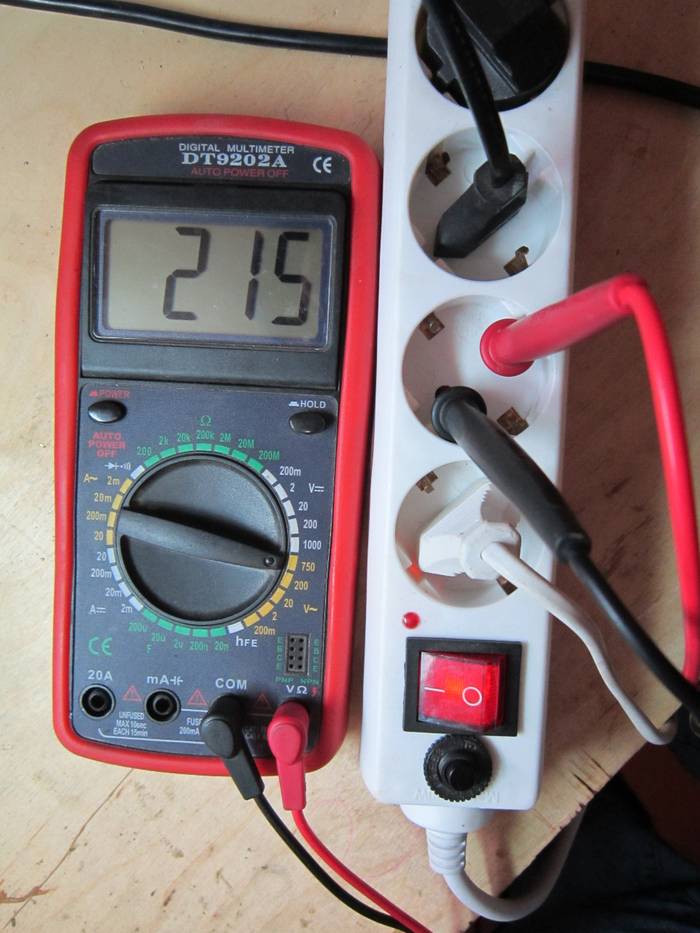
First of all, you need to check the AC voltage. Either a “familiar electrician” or a universal device – a multimeter – can help with this. Ideally, the network voltage should be 220 Volts, but deviations of 10% are allowed. Those. at 240 or 200 V the power supply should work fine.
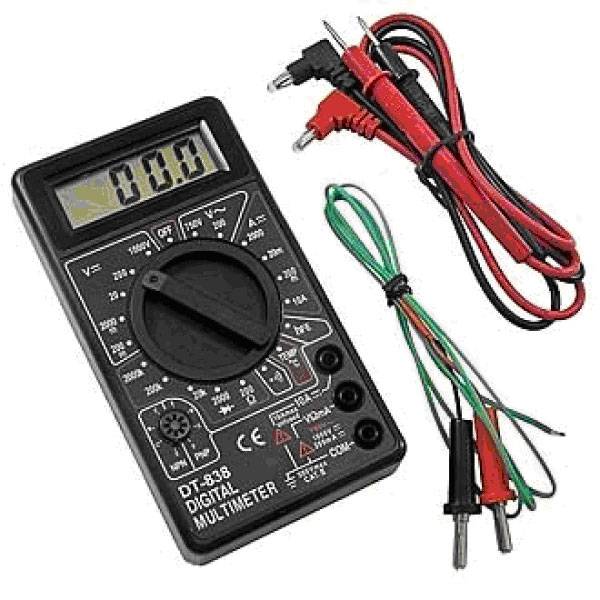
If the voltage deviates beyond acceptable limits, it is necessary to either solve the problem by contacting electricians, or install a voltage stabilizer, of which there are a sufficient number on sale.
In the power supply itself, if the problem is not in the outlet, there may be malfunctions of the following nature (when the computer periodically turns off):
- emergency shutdown as a result of overheating - the cooling fan may have failed, or the inside of the power supply has become very dirty;
- physical degradation of circuit components (usually capacitors) - usually after “warming up” it begins to work normally;
- excessive load on the components of the system unit - emergency shutdown as a result of overload;
- an emergency signal from the motherboard - a malfunction of the built-in converters or others (although this is no longer the power supply itself).
What needs to be done to correct the situation:

By and large, if cleaning the dust solved the problem, then good. In other cases (except for the option when the system does not work with a known-good power supply), it is best to replace the secondary power source. But in the case of system inoperability with a known good power supply, the problem lies in other components.
Overheating of the processor or video card
After long-term use, or if some components are initially defective, it is possible that the computer turns off due to overheating of important components. For example, central or central cooling radiators GPU can become “overgrown” with dust and stop performing their functions.
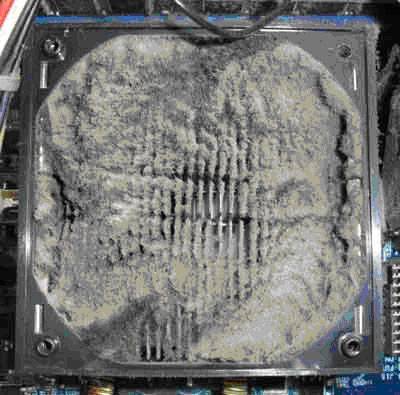
If the computer turns off by itself after 5 minutes of operation, then first of all it is necessary to check the cooling system.
The nature of the PC’s behavior will tell you what to initially pay attention to:

When to use software There is no way to determine the elevated temperature, and the BIOS displays quite adequate values (after all, there is no load in this mode), then you should simply carry out a visual inspection and preventive maintenance of the cooling systems.
First of all, you need to make sure that the cooling systems are securely fixed in place, and that the fans on them (if any) rotate without extraneous sounds and effort. When the fan makes a lot of noise or is difficult to rotate, it should be replaced.
Prevention of CO is carried out as follows (quite simply):

However, there may be cases when prevention does not help (or the computer is completely new). In this case, it is possible that the cooling system simply cannot cope with the task, because it lacks performance. This could be either an incorrect calculation during production or a loss of efficiency due to wear and tear.
Therefore, a more subtle approach is needed, which is also useful in case of one-time problems that have not yet “escalated” into a serious problem. In addition, such control will help prevent problems from arising.
Video: Computer shuts down
The temperature is too high, we find out the values in AIDA
All major PC systems are equipped with built-in monitoring and self-diagnosis components. Likewise, the central processor, video card and chipset are equipped with temperature sensors. Their readings can be seen in the BIOS, or you can use special programs in the OS environment.

One of the most common programs of this kind (and also has many others) useful features) is AIDA. That's why we'll use it. It does not require installation - just download it and you can start it right away. The program must be downloaded according to the appropriate version. If you have a 64-bit version of the OS (nowadays the majority of them do), then the program also needs AIDA64.
The launch itself is carried out by double-clicking on the program’s executive file (aida64.exe or aida.exe, respectively for the 64-bit and 32-bit versions). After launch, on the left side of the program window (titled “Menu”) you must select the “Sensors” item, after which the readings of all temperature sensors available in the system will be displayed on the right. It is useful to check the temperature readings when running resource-intensive applications, because... under load they increase.

The temperature should (ideally) not exceed 70 degrees Celsius. However, many powerful solutions allow the crystal to heat up to 100 degrees. However, the lower the temperature, the better. When it approaches a critical point, the conclusion is clear: the cooling system of the corresponding component cannot cope.
Why does my computer turn off spontaneously?
Listed above are only the main, most common problems. However, everything can be much simpler. For example, the power button on the system unit can easily become stuck. With a little experience, you can easily determine such a defect by touch, but it is not possible to exclude this option using more accurate methods.
For example, you can simply disconnect it from the motherboard by starting the PC manually by closing the corresponding contacts. If the computer stops turning off, then the reason has been determined. All that remains is to eliminate the defect.

In many cases it is necessary to start checking from this position. But if the reason is not in the button, then move on to checking others possible options described above.
It turns off after a while, what should I do...
Let’s look at what algorithm to use to determine a malfunction of this kind:

In order to carry out all the operations described above, you must have at least minimal knowledge of the structure of a PC. If the problem cannot be resolved (which is unlikely), then you should contact a specialist. Although you can replace the entire PC, which is also a solution.
As a result, the main part of the problems arising with spontaneous shutdown was considered, according to statistical data. In 99% of cases, the problems are exactly the same, relatively simple reasons. Eliminating them is also not difficult.
However, other types of malfunctions are also possible, with similar symptoms, for example, unstable operation of the current converter on the motherboard (this is also true for the video card). In this case, you can either replace the main component or contact a service center.


